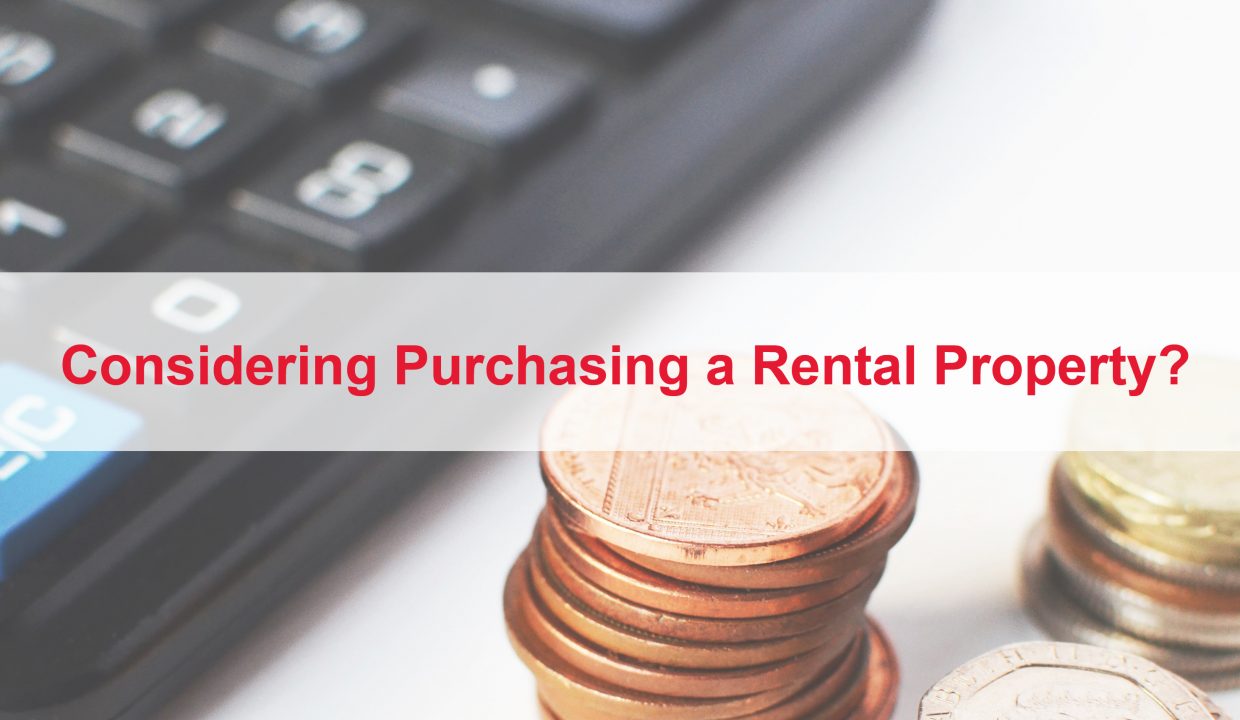
Any seasoned investor will tell you that buying and renting out an investment property is a job, and like any other job comes with a learning curve. This month’s blog will go into detail regarding some of the key pieces of information every potential investor should be aware of when considering an investment purchase.
Absolute Need-to-Know Checklist Before you Purchase a Rental Property
Owner Occupied Investment Properties
Purchasing a rental property and moving into one of the units is a great way to get your foot in the real estate door. With prices rising as quickly as they have, the additional income can make all the difference in being able to afford a home and qualify for a mortgage. Owner-occupied investment properties qualify for a much lower down payment, and also offer partial shelter from the capital gains tax penalties you will incur when it comes time to sell.
Cap Rate
Capitalization rate (or ‘cap’ rate for short) is calculated by taking the net operating income (NOI) of property and comparing that to the listed price of the property. The cap rate is typically represented as a percentage. So, if a building was being sold for $500 000, and had a declared net operating income of $50 000, the declared cap rate would be 10%. Although you will have to do your due diligence to determine exactly how a vendor has calculated their NOI, the cap rate is a great way for you to begin comparing properties to see which offer you potentially the best return on investment for the price.
Another important consideration regarding the cap rate is to decide whether purchasing an investment property is a good idea at all. Prices in Guelph have risen quickly over the past few years, and rents have not risen as quickly. Because of this, cap rates have fallen considerably over the past few years. Savvy investors calculate an ideal cap rate and a base cap rate, below which they will not consider making a purchase. Keep your emotions out of the purchasing decision as much as you can!
Risk Tolerance
I have many clients who have spoken about purchasing a rental property for years but have never acted on their desire. Most investors who have purchased a residential rental property over the past decade have made a profit. This does not guarantee, however, that the next 10 years will be as profitable. Like most investments, there are risks involved. Vacancy rates can turn around, property prices can start to fall, you might get stuck with a nasty tenant who takes months to vacate while damaging your property. Nearly all of my clients who have purchased a rental are very happy with their decision – but that doesn’t mean there weren’t a few sleepless nights along the way.
Bank Financing
Typically for a first type investor, the bank will look at your principal residence to draw the equity necessary for the down payment on the investment property. The bank will also look at the building you wish to purchase to determine whether it falls under a residential or commercial mortgage. Commercial mortgages are tougher to approve and often come with a higher interest rate than residential. You will want to take the financing rate that the bank offers you and work that into your cap rate calculation, to determine whether the property meets your investment goals in terms of affordability.
Neighbourhood/Location
As they say, location makes a huge difference. Desirable locations attract better quality tenants, and rent tends to rise more quickly, which, as you now know from cap-rate, increases the value of your investment.
Home Inspection
Do not cheap out on this item. A good home inspection can save you countless hours of grief and thousands of dollars of repairs down the road. If a home inspection offers news bad enough that it throws your cap-rate goals out the window, keep your emotions out of it and be prepared to walk away.
Are you Ready for a Part Time Job?
Some months, you’ll be depositing your post-dated cheques without a care in the world. Other months, you’ll fume at your misfortune as you deal with one problem after another. Leaky faucet, hole in the wall, an outlet not working, plugged toilet, the same tenant is late with rent yet again, two units have given their notice to vacate. In time, you’ll learn to handle all of it in stride, but each event will still eat up part of your day (at least). You’ll also have to make a decision early on to become handy (if you aren’t already) or be willing to pay a pretty penny for services you could otherwise do yourself.
Bottom Line: Is an Investment Property Worth It?
Obviously, ultimately it is only you who can answer that question. While it takes effort collecting rent, taking care of repairs, paying bills and property taxes, and finding new tenants, the payoff is that you will have an expensive asset that others are paying the mortgage for. If you have even a small amount of risk tolerance, have basic business/bookkeeping skills, and have the equity and financial flexibility that will allow you to purchase a building that may come with some periodic vacancy, chances are an investment property is the right fit.
I’d be happy to help you decide whether an investment property fits in with your financial goals, lifestyle, and risk tolerance. Let’s have a coffee, and I’ll run through what the market currently looks like, what might be available, and whether it would be a good fit for you.
